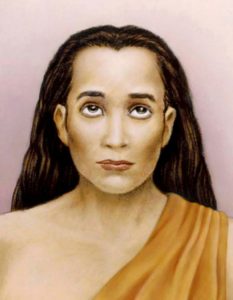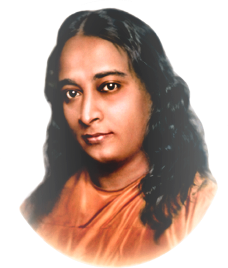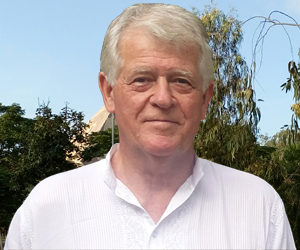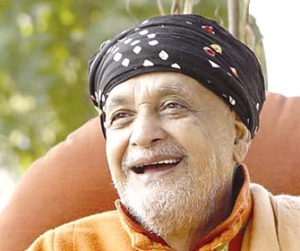Kriya Yoga is a meditation system based upon a rich and ancient tradition. It has its basis in the breath and the chakras (energy centres in the spine). The system is developed and tested through thousands of years. In Kriya Yoga one can experience inner Silence, which is the foundation for peace, happiness and Self-Realization.
The word Kriya is composed of two syllables, kri and yâ. In Sanskrit, kri means karma dhatu – action of the elements, and yâ means Soul or Atma. The word “Kriya” indicates action of the Soul or prâna karma. The first and most important action of the Soul is breath.
History

Kriya Yoga is an ancient yoga meditation system as old as the creation and it was lost during the course of time. It was revived in modern times by Mahavatar Babaji through his disciple Sri Shyama Charan Lahiri Mahasaya, in the year 1861, and brought into popular awareness through Paramhansa Yogananda’s book “Autobiography of a Yogi”. The system consists of a number of levels of Pranayama based on techniques that are intended to rapidly accelerate spiritual development and engender a profound state of tranquility and God-communion
As Yogananda describes Kriya Yoga, “The Kriya Yogi mentally directs his life energy to revolve, upward and downward, around the six spinal centers (medullary, cervical, dorsal, lumbar, sacral, and coccygeal plexuses) which correspond to the twelve astral signs of the zodiac, the symbolic Cosmic Man. One half-minute of revolution of energy around the sensitive spinal cord of man effects subtle progress in his evolution; that half-minute of Kriya equals one year of natural spiritual unfoldment.”
According to Yogananda, Kriya Yoga was well-known in ancient India, but was eventually lost, due to “priestly secrecy and man’s indifference”. Yogananda says that Krishna refers to Kriya Yoga in the Bhagavad Gita: Offering inhaling breath into the outgoing breath, and offering the outgoing breath into the inhaling breath, the yogi neutralizes both these breaths; he thus releases the life force from the heart and brings it under his control.
Yogananda also stated that Krishna was referring to Kriya Yoga when “Lord Krishna relates that it was he, in a former incarnation, who communicated the indestructible yoga to an ancient illuminaton, Vivasvat, who gave it to Manu, the great legislator. He, in turn, instructed Ikshwaku, the father of India’s solar warrior dynasty.” Yogananda says that Patanjali was referring to Kriya Yoga when he wrote “Kriya Yoga consists of body discipline, mental control, and meditating on Aum.” And again when he says,”Liberation can be accomplished by that pranayama which is attained by disjoining the course of inspiration and expiration.”
The story of Lahiri Mahasaya receiving initiation into Kriya Yoga by the yogi Mahavatar Babaji in 1861 is recounted in Autobiography of a Yogi. Yogananda wrote that at that meeting, Mahavatar Babaji told Lahiri Mahasaya, “The Kriya Yoga that I am giving to the world through you in this nineteenth century, is a revival of the same science that Krishna gave millenniums ago to Arjuna; and was later known to Patanjali, and to Christ, St. John, St. Paul, and other disciples.” Yogananda also wrote that Babaji and Christ were in continual communion and together, “have planned the spiritual technique of salvation for this age.”
Kriya Yoga, as taught by Lahiri Mahasaya, is traditionally learned via the Guru-disciple relationship. He recounted that after his initiation into Kriya Yoga, “Babaji instructed me in the ancient rigid rules which govern the transmission of the yogic art from Guru to disciple.”
Lahiri Mahasaya’s disciples included his oldest son, Sri Tincori Lahiri, Swami Sri Yukteswar Giri, Sri Panchanon Bhattacharya, Swami Pranabananda, Ram Gopal Majumdar, Swami Kebalananda, Brahmachari Keshabananda, and Bhupendranath Sanyal (Sanyal Mahasaya).
Through Lahiri Mahasaya, Kriya Yoga soon spread throughout India. Yogananda, a disciple of Swami Sri Yukteswar Giri who was himself a disciple of Lahiri Mahasaya, then brought Kriya Yoga to the United States and Europe during the 20th century.
Paramahansa Yogananda about Kriya Yoga

My guru, Sri Yukteswar, liked a chant that I have translated, two lines from which go, “Pranayama be thy religion. Pranayama will give thee salvation.”
Pranayama means control of the energy in the body, and its direction upward through the spine to the brain and to the Christ center between the eyebrows. This alone is the pathway of awakening. It isn’t a matter of dogma or belief. It is simply the way we were all made by God.
The consciousness enters the body by way of the brain and the spine. When the sperm and ovum unite to create the physical body, they do so at what becomes the medulla oblongata, at the base of the brain. From this medulla, the life force moves out into the brain, down the spine and into the nervous system, then on to the muscles, etc., creating the body.
The way out of the body, then, is to reverse this process. The difficulty in doing so lies in the fact that the life force is already conditioned by birth to continue its outward direction—through the senses and onward to the environment as it is perceived through the senses. Thus, we think to possess the world and to enjoy it through the body.
We can never experience anything outside ourselves, however, except vicariously, as the senses report their impressions to the brain. We may try to expand our understanding of the world by study, or our enjoyment of it through sense pleasures. The fact remains, we can never know anything except through the medium of the senses, so long as the life force remains trapped in the body.
There is a way out, however. It is for the life-force to merge with the cosmic energy; for the consciousness to merge in the infinite consciousness.
The way to accomplish this end is to withdraw the life force from the senses, and center it in the spine; to direct it upward through the spine to the brain, and thence out through the Christ center between the eyebrows.
The ego is centered in the medulla oblongata. This is the negative pole of self-consciousness. The positive pole is situated at the Christ center. Concentration at this center—in the spiritual eye, the seat of spiritual vision—projects the consciousness beyond the ego into Infinity.
The spine is the highway to the Infinite. Your own body is the temple of God. It is within your own self that God must be realized. Whatever places of pilgrimage you visit outwardly, and whatever outward rituals you perform, the ultimate “‘pilgrimage” must be within. And the ultimate religious rite must be the offering of your life-force on the altar of inner God-communion.
That was why Jesus said, “Destroy this temple, and in three days I will raise it up.” “‘He spoke,” the Bible adds, “‘of the temple of his body.” (John 2:19, 21) This is the path of Kriya Yoga.
Per H. Wibe – The Kriya Yogi from Norway

Kriya Yoga is a meditation technique which takes us inside to Silence, to a level of no conflict. The techniques are based on the breath, the awareness and the energy centers (chakras) in the spine – developed and tested through thousands of years, based on a rich and ancient tradition.
The techniques are simple and effective. In a retreat, one receives initiation in the 1st Kriya which comprises of six techniques. There are further higher Kriyas, up to the 7th, which is subsequently given according to individual’s preparedness through regular practice.
When the body is born we start to breathe, when the body dies the breath leaves the body. This is happening all the time, we are breathing in and out. We inhale new life from the source, and we exhale that which is dead from the body. To realise who we are, our unity with life, we have to be consciously connected to the source of life through the breath.
The secret about higher states of consciousness is that it is intimately related to the breath. The word yoga comes from Sanskrit yuj which means union – the union of the individual soul with Spirit. Kriya Yoga is a method to attain the union of breath and soul in each inhalation and exhalation. Kriya means action and yoga unification. Kriya Yoga is action that leads to unification, to the state of no conflict in the consciousness.
In the Indian scripture Bhagavad Gita this theme is thoroughly illuminated. Here we read about the warrior Arjuna, who is the best bowman of his time, and whose life task is to fight for good against all challenges. However, staying at the battlefield Arjuna is paralysed by an inner conflict: he may have to kill family members as they side with his enemy. Arjuna is irresolute and unhappy, and unable to take action until Krishna (Kriya Yoga) comes to help him. Arjuna’s consciousness is lifted to the level of unity, where no conflicts exist. As a result, Arjuna is capable of fulfilling his divine mission in life.
A good life without inner conflict is a fundamental human need. Those who faithfully and sincerely seek the Self, and who gradually receive the higher Kriya techniques, acquire insight into the deeper meaning of meditation. The source of knowledge is infinite, and the interaction between the Self and life itself is vital to realize unity in the consciousness.
Kriya takes us to subtle levels in the consciousness. Closeness to the breath brings us to the lotus flower of non-duality, to a level of deep inner Silence. In this way alertness and love are manifested as a state of consciousness. Neither the intellect nor the senses are able to bring us to this state. Only the breath, the life force, has the power to take us to the Self, the Divine.
With regular Kriya practice, one is building inner Silence which gradually becomes a part of us. As a result, one is more calm and peaceful in all aspects of life.
Swami Satyananda Saraswati – disciple of Sivananda about Kriya Yoga Meditation

The Path of Kriya Yoga
Awakening of kundalini is very difficult. You can try the various yogic and religious practices that have evolved throughout the ages, but they require a lot of self-discipline and demanding austerities. There are so many do’s and dont’s that the average person finds unpalatable. Therefore, the rishis of the tantric tradition evolved a series of practices that could be easily adopted by every type of aspirant regardless of his lifestyle, habits, beliefs, and so on. Of course there are many practices belonging to tantra, but of them all, kriya yoga is considered to be the most powerful and suitable for the modern day man who is enmeshed in this world.
For many years, knowledge of this system of yoga was revealed to very few. The practices were mentioned in the tantric texts, but they were never clearly defined. Through a tradition, the practices were handed down from guru to disciple. They were given to both householder and monastic disciples, who soon discovered that through these techniques, kundalini became a reality and a real experience in their lives.
The ultimate purpose of kriya yoga is to create awakening in the chakras, to purify the nadis, and finally, to awaken the kundalini shakti. The kriyas are intended to awaken the kundalini in stages and not abruptly. When kundalini awakens abruptly, the experiences you have are very difficult to handle and you cannot understand what is happening to you. The techniques of kriya yoga offer a smooth and relatively risk-free means of expanding your awareness and awakening the dormant areas of the brain. Also, this system of kriya yoga provides a means whereby you do not have to tackle the mind directly. Its practices are based on hatha yoga, which aims at controlling the prana. Mind and prana interact with each other and thereby, by controlling the prana, we can gain control of the mind.
Kriya yoga offers a unique approach
Kriya yoga means ‘the yoga of practice, movement or action’. Unlike the various religious, mystical or yogic practices which demand mental control, the special instruction in the system of kriya yoga is, ‘Do not worry about the mind.’ If your mind is dissipating or if there are distractions in your mind and you are not able to concentrate even for one second, it does not matter. You have only to continue with your practices, for even without confronting, controlling or trying to balance the mind, you can still evolve.
This is an entirely new concept in spiritual life, and most people have probably never even considered it. When they take to a religion, commence spiritual practices or go to gurus, the first thing they are told is to control the mind. ‘You should think like this. Don’t think like that. You should do like this. Don’t do that. This is good. This is bad. That is evil. Do not sin.’ And so on. People think that the mind is the greatest barrier in spiritual life, but this is a very wrong and dangerous concept. The mind is a bridge between this and that, so how can it be a barrier?
An idiot thinks it is a barrier and he tries to destroy that bridge. Then when he has destroyed it, he wonders how he’ll get to the other side. This is the ironical fate of most people, and unfortunately it is the religions, ethics and morality that are responsible. The people who are less aware of ethics and morality have no mental problems. They are very good, happy-go-lucky people.
The seers and rishis of kriya yoga have said, ‘Control of mind is not necessary. Just go on practising the kriyas and let the mind do what it wants. In the course of time, the evolution of consciousness will take you to that point where the mind will no longer trouble you.’
Dissipation of mind is not necessarily the fault of the mind. Distractions can be due to hormonal imbalances, bad digestion, low influx of energy in the nervous system and so many other things. Never blame the mind for its restlessness, and don’t consider yourself to be an impure, bad or inferior person because your mind jumps all over the place, thinking negative things and what you consider to be evil thoughts, etc. Everybody has negative thoughts and distractions of mind, even a compassionate and charitable person, a peaceful man, a chaste and pure person. Dozens of factors could be the cause of a distracted mind. Suppressing the mind and calling it back again and again is not the way to concentrate the mind, it is a way to the mental hospital. After all, who suppresses or calls back who? Are there two personalities or two minds in you? Is there one bad mind which keeps wandering off and one good mind which tries to bring back the bad mind? No, there is only one mind and you should not create a split by antagonizing the mind. If you do this, one part of the mind becomes the dictator and controller and the other part becomes the victim. Then you’ll develop a great gap between two aspects of your mind and personality and within a very short time you’ll become totally schizophrenic.
It is necessary to understand this point very well, because our religions, philosophies and ways of thinking have not been very systematic, loving and tender in their approach to the mind. We have always been led to believe that the mind is very mischievous, but this is a grave mistake. Therefore, please try to redefine the mind and approach it scientifically.Mind is not a psychological stuff, nor is it a thought process. Mind is energy. Anger,passion, greed, ambition, etc. are waves of that energy. Through kriya yoga you are trying to harness the energies of the mind, but you should not try to suppress this energy because it will explode. And the more you suppress this energy the greater will be the ultimate explosion.
Kriya yoga is very clear in its approach to the mind. It emphasizes that you do not try to do anything with the mind. If your body protests about maintaining a fixed posture, change it. If your mind objects about closing the eyes, keep them open. But you must continue with the kriya yoga practices because they have a direct effect on the deeper processes of the body which are responsible for the state of your mind. Remember that the body affects the mind and the mind affects the body.
We should not consider the techniques of kriya yoga as practices of concentration or meditation as their aim is not mental control. The beauty of kriya yoga is that you have only to remain relaxed and let the mind move naturally and spontaneously. Inner awareness will then awaken, and in time, your mind will automatically become one-pointed.
